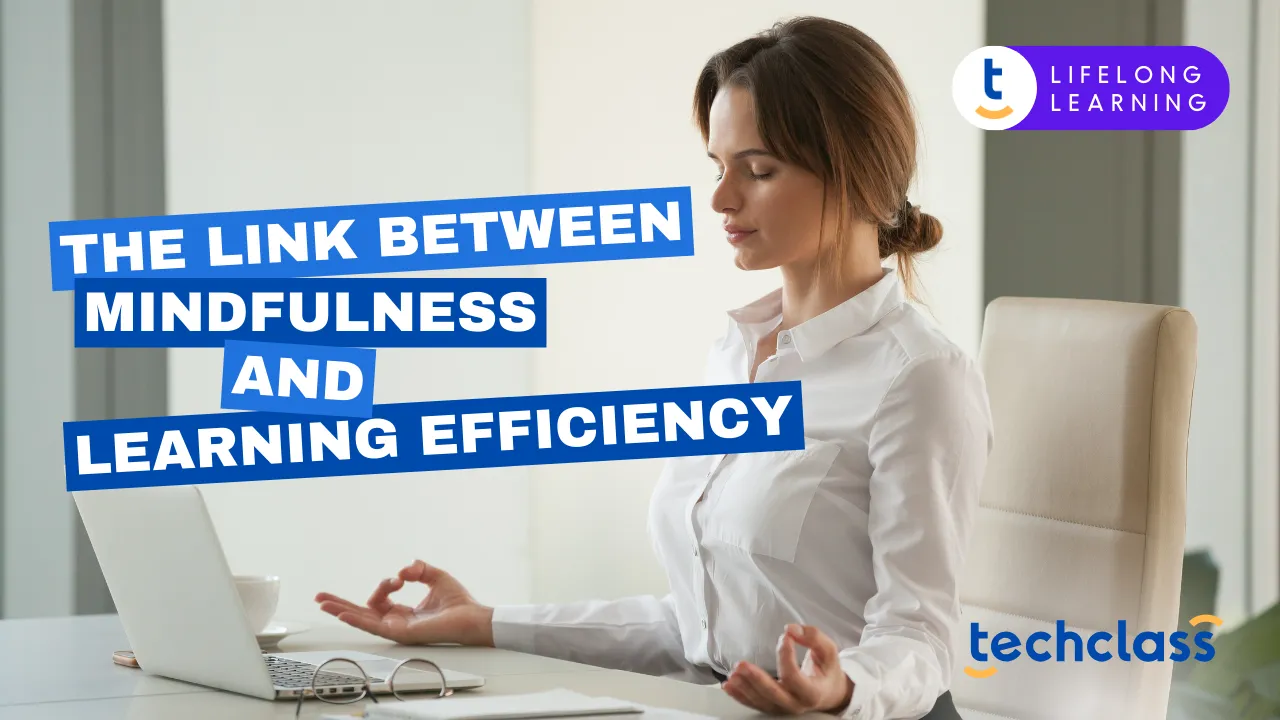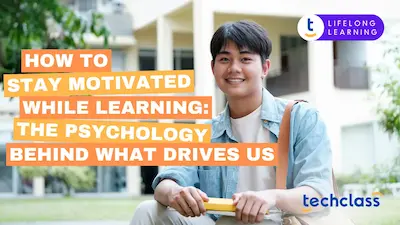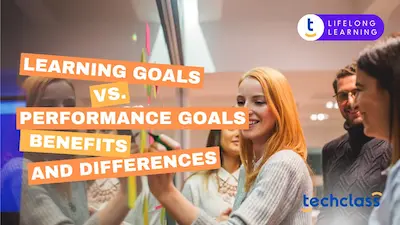
In our fast-paced, distraction-laden world, people often grapple with maintaining focus, managing stress, and retaining new information. Mindfulness: a practice rooted in present-moment awareness, offers a powerful tool to enhance learning efficiency and support learning journeys.
Mindfulness involves paying deliberate, non-judgmental attention to the present moment. It's about observing thoughts, feelings, and sensations as they arise, without getting caught up in them. This practice cultivates a heightened state of awareness, enabling individuals to respond to situations with clarity and composure.
Self-regulated learning, the ability to plan, monitor, and reflect on one’s own learning process, is a crucial skill for people pursuing knowledge independently. Mindfulness supports this by fostering metacognitive awareness. When learners pause to observe their thoughts and reactions mindfully, they can better identify when they are distracted, overwhelmed, or falling into ineffective habits.
For instance, a mindful learner might notice procrastination creeping in and choose to redirect attention rather than unconsciously giving in. This conscious self-regulation enhances learning efficiency by promoting purposeful study strategies and goal-oriented behavior.
Integrating mindfulness into your daily learning routine doesn't require hours of meditation or major lifestyle changes. Small, intentional practices can bring noticeable improvements in how effectively and enjoyably you learn. Here are five mindfulness strategies adapted to fit the needs of people pursuing personal or professional growth:
Mindful breathing involves paying focused attention to your breath as it flows in and out of your body. During a study session or while reading a new concept, it’s natural for the mind to drift. By pausing for a minute or two to consciously follow your breathing, feeling the air entering your nose, filling your lungs, and gently leaving, you train your mind to stay present.
This technique helps interrupt cycles of anxiety, overwhelm, or mental fatigue. For people balancing work, family, and learning goals, even short breathing breaks can reset your attention and reduce stress, improving focus for the next task at hand.
Body scan meditation is a simple but powerful way to connect with your physical self. It involves mentally scanning your body from head to toe (or vice versa), noticing sensations, tension, or discomfort without trying to change anything.
For people who may be studying after long work hours or managing physical strain, this practice helps identify how the body is feeling and where stress is held. A quick body scan before or during a learning session can relax tight muscles, reduce restlessness, and increase your sense of calm, creating a more comfortable and receptive state for learning.
Mindful listening is the practice of giving full, undivided attention to whoever is speaking, without mentally rehearsing your reply or allowing your thoughts to wander. Whether you're participating in a webinar, group discussion, or one-on-one learning exchange, mindful listening transforms passive hearing into active engagement.
This approach not only enhances comprehension but builds deeper connections with others. You absorb more, ask better questions, and often remember the material more vividly because you were fully present for the exchange.
Reflective journaling is a form of mindful reflection where you write about your learning experiences, what you understood, what confused you, how you felt, and what insights emerged. It’s not about grammar or perfection, but about exploring your internal process.
This strategy reinforces memory and meaning-making, turning surface-level information into personal knowledge. Over time, journaling helps you track progress, identify recurring challenges, and celebrate small wins. For people navigating learning outside of formal settings, journaling becomes a valuable self-guidance tool.
In an era of digital multitasking, single-tasking, doing one thing at a time with full attention, has become a lost art. Yet, research consistently shows that multitasking impairs learning and memory.
By committing to single-tasking, you train your brain to concentrate fully on the task at hand, whether it's watching a video lecture, reading a chapter, or solving a problem. Set a timer for focused learning blocks (e.g., 25–30 minutes) and silence notifications during this time. This simple shift dramatically improves productivity, reduces cognitive fatigue, and makes your learning time more effective.
These practices, while simple, have the power to transform your learning experience. When practiced consistently, mindfulness helps you become not just a better learner, but a more present and intentional version of yourself, both in learning and in life.
Emotional intelligence, understanding and managing one’s emotions, plays a significant role in education. Mindfulness practices increase emotional awareness, helping learners recognize feelings like frustration, boredom, or self-doubt without letting these emotions derail their progress.
This enhanced emotional regulation allows people to approach challenges with equanimity. Instead of reacting impulsively or avoiding difficult material, mindful individuals can acknowledge the discomfort and proceed thoughtfully. This resilience not only improves learning outcomes but also strengthens confidence and persistence over time.
A growth mindset, the belief that abilities can be developed through effort and learning, is foundational for learners. Mindfulness nurtures this mindset by encouraging non-judgmental reflection on one’s experiences. When learners observe their setbacks without labeling them as failures, they are more likely to view challenges as opportunities for growth.
Mindful reflection can be as simple as asking: “What did I learn from this?” or “How can I approach this differently next time?” This shift in perspective promotes curiosity, reduces fear of failure, and helps people stay engaged and motivated throughout their learning journey.
Incorporating mindfulness into your learning routine doesn't require significant time investments. Even brief, consistent practices can yield substantial benefits. By fostering a mindful approach to learning, people can enhance their educational experiences, adapt to new challenges, and sustain motivation throughout their learning journeys.
Embracing mindfulness is not just about improving academic performance; it's about enriching the entire learning process. By cultivating present-moment awareness, people can unlock deeper engagement, resilience, and fulfillment in their learning and growth pursuits.
While mastering the internal practice of mindfulness is a personal journey, the digital environment in which people learn plays a significant role in their success. Clunky or fragmented platforms often introduce unnecessary cognitive noise, making it difficult for even the most disciplined learners to maintain the focus and clarity required for deep, meaningful work.
TechClass is designed to eliminate these distractions by providing a human-centric experience that feels as intuitive as a modern consumer app. By leveraging tools like the 24/7 AI Tutor and structured Learning Paths, TechClass reduces the stress of navigation and information overload. This intentional design helps organizations foster a culture of calm, focused development, enabling teams to apply mindful principles to their professional growth without the friction of outdated training software.


.webp)